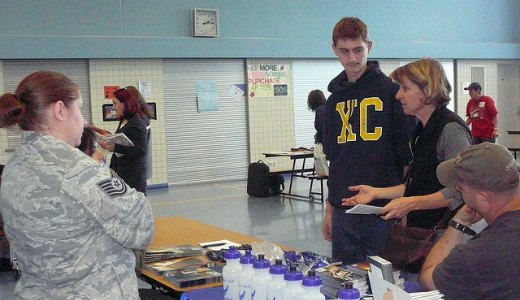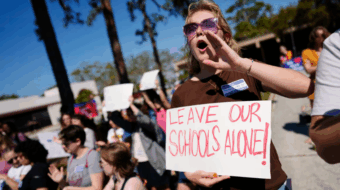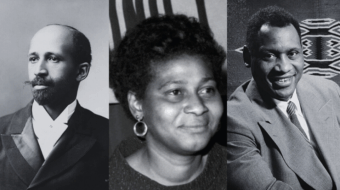
READING, Pa. – When I walked across the graduation stage in 2010 it was the happiest day of my life. Some 300 students and I had managed to earn our high school diplomas and we would be heading off to start our lives in the real world. Most of us were going to college.
But not everyone was so lucky. Being in a rural school district Blue Mountain High School had its share of students in poverty who couldn’t afford college. When I graduated it was announced that a quarter of the class was joining the military. At the time I was a Republican. I clapped and cheered at the announcement, like every other person present that night. After all what could be more patriotic and dutiful than joining the military and fighting for our freedom?
So I naively thought at the time.
Fast forward two years to today. Now that I look back I’m not so sure the whole patriotic argument applied like I thought it would. Most of the people who joined the military came from poor and working class families. Sure there were a few who did it out of patriotism and for education at a military academy, but I think for the vast majority it was for a good job.
For many lower income students military service can be an attractive option especially in tough economic times such as today. You get some of the best health care in the world for free, enlistment bonuses are in the tens of thousands of dollars, and you get hundreds of thousands of dollars in education benefits.
But let’s think about what the military has been doing during my generation.
We fought an illegal war in Iraq where a president lied to the entire nation and sent thousands of brave young men and women to their deaths in a country that we had no business being in. We continue to fight a war in Afghanistan that should have been over long ago. Thousands of young Americans have lost their lives, and hundreds of thousands of our veterans are returning home to homelessness, chronic mental illness, physical debilitation, hostility by employers, and even by the very government they served.
The time has come bring our men and women home from war. Not only that but it’s also time to start seriously reconsidering our defense priorities and budget. We spend so much on defense that we far outspend any other country in the world in military expenses.
Yet we can’t even take care of the poor, our children, the sick, the disabled, and most of all our veterans whom we are failing every day.
So what do we do about this? We can start first by ending all the wars . We’ve already ended our time in Iraq. It’s time to do the same in Afghanistan. Bring the troops home now. If we do that it will give the Taliban an incentive to end the fighting and negotiate with the Afghan government for a peace deal.
Second it’s time to cut the military budget. We spend so much on a bloated military with new weapons concepts that cost in the billions of dollars. President Obama, as part of the deficit compromise, has announced hundreds of billions of dollars in cuts to the military. That’s a good start.
With the savings we can reinvest in our country. We can put people back to work by fully funding the president’s new jobs programs. We can save Social Security, Medicare, and Medicaid from the chopping block. We can expand other programs like WIC and food stamps as well. We need to make sure we have jobs programs in place for low-income students as well as at-risk students who feel that military service is their only option for getting ahead in life. To start we can expand the number of positions in the Peace Corps, Americorps and the Federal Job Corps program. This way students don’t feel forced into signing up for military service just because they have no other alternative.
Some critics of defense budget cuts argue that soldiers would simply be discharged into civilian life with no hopes for assistance. We can prevent that from happening. Right now transition programs and benefits provided through the Veterans Administration are chronically underfunded. By reinvesting savings into these programs and by expanding services to include areas such as mental health and housing we can provide our veterans with the best care they need to return to civilian life. We can also make finding civilian employment easier for all veterans by expanding veterans’ preference to the entire jobs market through affirmative action.
Also the government can work to provide jobs for returning veterans by partnering with labor union veterans’ organizations such as the AFL-CIO’s Union Veteran Council. Who better to lead the fight for high quality jobs for our veterans than America’s unions?
What role would a greatly reduced military play in future American society? For one thing the illegal and costly wars would be over. Foreign policy would be based on mutual respect and peace, not guns and bombs.
A highly professional, mobile, and smaller military force could provide things that militaries in neutral countries do. Our Coast Guard and Navy can finally return from the dangerous waters of the Persian Gulf and partake in rescue operations, natural disaster response such as oil spills, and environmental protection missions. The Army could participate in UN peacekeeping operations much like the soldiers of Switzerland and China. The Air Force could provide helicopters to rural areas for medical evacuations. The peacetime possibilities are endless.
Americans want peace after a decade of war. We owe our children that much.
Photo: Herald Post // CC 2.0










